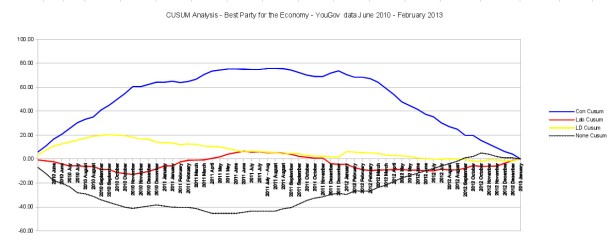On Thursday the most interesting by-election of this Parliament takes place.
Eastleigh, recently vacated by the disgraced Chris Huhne, sees the two Coalition parties fight it out. It is a Liberal Democrat stronghold, held since 1994. Even Labour’s 1997 landslide resulted in only a third place with 26.8 % of the vote.
Here is the 2010 result:
| General Election 2010: Eastleigh |
|||||
|---|---|---|---|---|---|
| Party | Candidate | Votes | % | ±% | |
| Liberal Democrat | Chris Huhne | 24,966 | 46.5 | +8.2 | |
| Conservative | Maria Hutchings | 21,102 | 39.3 | +2.1 | |
| Labour | Leo Barraclough | 5,153 | 9.6 | −11.5 | |
| UKIP | Ray Finch | 1,933 | 3.6 | +0.2 | |
| English Democrats | Tony Pewsey | 249 | 0.5 | N/A | |
| Independent | Dave Stone | 154 | 0.3 | N/A | |
| National Liberal Party – Third Way | Keith Low | 93 | 0.2 | N/A | |
| Majority | 3,864 | 7.2 | |||
| Turnout | 53,650 | 69.3 | +4.9 | ||
| Liberal Democrat hold | Swing | 3 | |||
This by-election raises issues for left-leaning voters. Who do you vote for when the only real contenders are in Government delivering policies that are diametrically opposed to your principles?
This is the dilemma that First-Past-The Post poses across the country. It turns the decisions made in elections from working out the best choice to calculating the least worst. Framed in this fashion then, what is a Labour and Green supporters least worst option, assuming your priority to to remove this Government?
The answer is quite clear – vote Liberal Democrat. That’s right – vote Liberal Democrat.
In 2015 the Liberal Democrats will be fighting 57 seats. Of these, in 38 the Conservatives are the second place party and Labour are runners-up in 19.
Below is a table with the effect of different swings from the Liberal Democrats to the Conservatives and Labour on the seats that Liberal Democrats would lose.
- Liberal Democrat
- Conservative
- Labour
| Swing Achieved | Gain for Conservative | Gain for Labour |
| 5 % | 15 | 0 |
| 10 % | 30 | 2 |
| 15 % | 37 | 5 |
| 20 % | 38 | 18 |
| 25 % | 38 | 34 |
| 30 % | 38 | 38 |
For example, should the Conservatives get a swing of 5% from the Liberal Democrats in these seats, they would take 15 seats. Should Labour get the same swing in the same seats, even a static Conservative vote would result in no gains whatsoever.
Next, seats where Labour are second:
- Liberal Democrat
- Labour
- Conservative
| Swing Achieved | Gain for Labour | Gain for Conservative |
| 5 % | 7 | 2 |
| 10 % | 13 | 4 |
| 15 % | 17 | 9 |
| 20 % | 18 | 16 |
| 25% | 18 | 18 |
| 30 % | 19 | 19 |
Here a 10 % swing from Liberal Democrat to Labour would gain Labour 13 seats, and the same swing the Conservatives with a static Labour vote would win 4 seats,
The end goal of removing the Conservatives in 2015 is hampered seriously if the Liberal Democrats lose ground in the south, south east and south west where Labour are not contenders. Every seat the Conservatives win makes the job of Labour harder.
By-elections since 2010 strongly suggest that the Liberal Democrats have suffered serious swings to Labour, enough to virtually eliminate them from most urban areas, the north and the regions. Labour have also gained on the Conservatives.
The pincer movement of Labour gains in the north and urban areas and Liberal Democrat holds in the south would be fatal to David Cameron’s attempt to even be the largest party. UKIP making taking Conservatives votes would simply compounds the Conservatives in a triple squeeze
So if you live in a seat Labour are a poor third, allowing the Conservatives win by not voting Liberal Democrat really is cutting of your nose to spite your face.
Perhaps you should try one of Polly Toynbee’s nose pegs?


